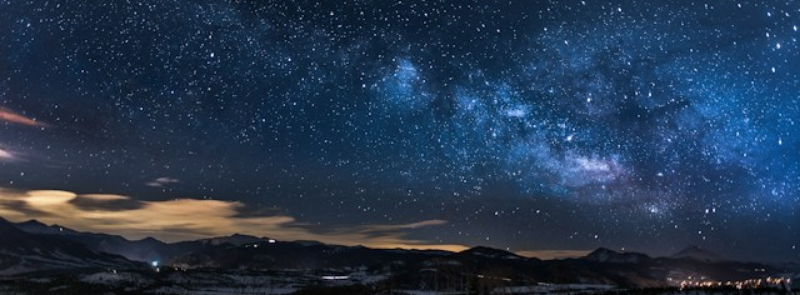
When It Occurs
Annually in Week of the New Moon in April
Timeline
Days Passed (310)
# Hashtags
#InternationalDarkSkyWeek #NightSky
In April, specifically during the new moon week, we observe International Dark Sky Week—a seven-day event established in 2003 by Jennifer Barlow, a Virginia high school student. The primary goal of this week is to increase awareness about the impact of light pollution on the night sky and to revel in the awe-inspiring beauty of an unpolluted night sky.
Historical Context
- Origins: International Dark Sky Week was founded in 2003 by Jennifer Barlow, a high school student from Virginia, USA. She aimed to draw attention to the beauty of the night sky and the detrimental effects of light pollution.
- Growth: Since its inception, IDSW has grown into a worldwide event celebrated by astronomers, environmentalists, and night sky enthusiasts.
Purpose and Significance
- Awareness of Light Pollution: The main goal of IDSW is to educate people about light pollution, its effects on the environment, human health, and astronomy.
- Promotion of Dark Skies: The event encourages communities to adopt responsible lighting practices that reduce light pollution and preserve the natural night environment.
- Appreciation of the Night Sky: IDSW provides an opportunity for people to experience and appreciate the beauty of a natural night sky without the interference of artificial light.
Effects of Light Pollution
- Environmental Impact: Light pollution disrupts ecosystems, affecting nocturnal wildlife by altering their natural behaviors, such as migration, reproduction, and feeding patterns.
- Human Health: Exposure to excessive artificial light at night can disrupt human circadian rhythms, leading to sleep disorders and other health issues.
- Astronomy: Light pollution obscures the visibility of stars and celestial objects, making it difficult for astronomers and stargazers to observe the night sky.
Commemoration Activities
- Star Parties: Astronomy clubs and observatories often organize star parties, where people gather to observe the night sky through telescopes and learn about astronomy.
- Public Lectures and Workshops: Educational events, including lectures and workshops on light pollution and astronomy, are held to raise awareness.
- Community Actions: Many communities participate by dimming or turning off non-essential lights, implementing better lighting practices, and advocating for dark sky-friendly policies.
- Social Media Campaigns: Participants share their experiences and spread awareness about light pollution using hashtags like #IDSW and #DarkSkyWeek.
Benefits of Dark Skies
- Environmental Conservation: Reducing light pollution helps protect wildlife and natural habitats.
- Energy Savings: Using responsible outdoor lighting can reduce energy consumption and lower utility bills.
- Enhanced Quality of Life: Natural nightscapes contribute to human well-being by providing a sense of wonder and connection to the universe.
- Improved Astronomy: Dark skies allow for better observations and discoveries in the field of astronomy.
Modern Trends and Efforts
- Dark Sky Places: The IDA designates certain locations as International Dark Sky Places, including parks, reserves, and communities that meet strict lighting criteria to preserve dark skies.
- Legislation and Policies: Many regions are adopting light pollution regulations and policies to promote dark skies.
- Technology and Innovation: Advances in lighting technology, such as shielded fixtures and low-intensity LEDs, help minimize light pollution while providing necessary illumination.
Resources and Participation
- International Dark-Sky Association (IDA): The IDA offers resources, guidelines, and support for individuals and communities interested in reducing light pollution.
- Educational Materials: Various organizations provide educational materials, including guides, videos, and toolkits, to help spread awareness about the importance of dark skies.
- Local Astronomy Clubs: Local clubs and organizations often host events and provide opportunities for community engagement during IDSW.
Challenges
- Urbanization: Rapid urbanization and development continue to increase light pollution, making it challenging to preserve dark skies.
- Public Awareness: Despite growing awareness, many people remain unaware of the impacts of light pollution and the benefits of dark skies.
International Dark Sky Week is a crucial event that promotes the conservation of our natural night environment. It brings together communities, astronomers, and environmentalists to advocate for responsible lighting practices, ensuring that future generations can enjoy the beauty and wonder of the night sky.


